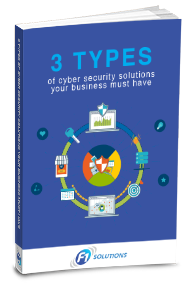By now, you may be tired of hearing news about data breaches and cyberattacks on a daily basis. But the fact remains that cybercrime is not going to disappear anytime soon. With small- to medium-sized businesses (SMBs) making the shift to more modern and technology-based environments, hackers are presented with newer and easier targets.
Cybercriminals often find ingenious ways to circumvent network security measures and are also quick to take advantage of careless users to steal valuable data. But have you ever been curious about what hackers do with all that data once they get their hands on it? Here are just some of the ways hackers can use stolen data.
Mine it for virtual gold
Once they obtain a repository of stolen data, hackers begin to identify just what sort of data they have. They often look for valuable information such as login credentials, credit card details, personal information, intellectual property (IP), email, and physical addresses. The information they gather can be used for future attacks, or they can sell it on the dark web.
Sell it
Big data means big business to a hacker, and nothing fetches more money than company data and IP. Since SMBs have substandard cybersecurity initiatives in place, they become prime targets for most cyberattacks. Hackers can then sell the data on the dark web for a hefty sum of money. According to Experian, this is how much personal information is selling for on the dark web. In fact, dark web sites are taking on a corporate look and feel. Some of them even have their own call centers with English speaking customer service representatives.
- Social security numbers: $1
- Credit or debit cards: $0.50 – $1 per card, sold in bundles of 100 or 1000
- Paypal login credentials: $20 – $200
- Loyalty accounts: $20
- Driver's license: $20
- Subscription services: $1 – $10
- Diplomas: $100 – $400
- Medical information: $20 – $50
- Digital Passports: – $15
- Physical Passports: $13000
Hold it for ransom
Some hackers prefer holding stolen data for ransom instead of selling it. In what's called a ransomware attack, cybercriminals use malware to encrypt data, preventing you and others from accessing it. The only way to regain access to the data is by paying the ransom demanded by the hacker. SMBs are perfect targets because they often don't have a reliable backup and disaster recovery system in place.
And since it's harder for SMBs to rebuild their business systems after an attack, most of them end up paying the ransom. Unfortunately, there are instances wherein business owners end up not getting their data back even after paying the ransom.
Use it to commit fraud
Once cybercriminals get a hold of bank accounts and credit card numbers, they can basically steal a person's identity. They can use such information to perform fraudulent transactions online, create fake credit cards, and even transfer money out of the victim’s bank account.
Commit vandalism
Another way cybercriminals can use stolen data is to commit vandalism. Stolen login credentials allow hackers to infiltrate a target website and change its appearance in what's called "website defacement." Motives for website defacement vary, but making a political statement is the most prevalent one.
Hacktivists, as they are called, use stolen credentials to log in to a website using an administrator account. Once logged in, they're free to do anything like changing the content of the website using pictures and messages they created.
Retaliate or simply show off
Aside from financial gain, another motivating factor for hackers to steal data is revenge. Disgruntled employees can break into your company's system and destroy all your valuable information or even sell them to a competitor. There are also others who don't do anything with the data they've stolen. They simply hack into an organization's systems for recognition and to show others that they’re capable of doing it.
For hackers to steal your precious data, all it takes is one compromised machine or reckless user. What they do with the data they steal differs from a case to case basis, but the bottom line is, you don't want to find yourself in this situation. Unfortunately, many businesses are ill-equipped to prevent or handle a data breach. This is where F1 Solutions come in. We house experts who specialize in protecting your data from both internal and external threats. We look forward to hearing from you, call us today.
Download our free eBook!
Learn about affordable cyber security solutions that keep your business safe from malware and data breaches by reading our free ebook: 3 Types of Cyber Security Solutions Your Business Must Have



